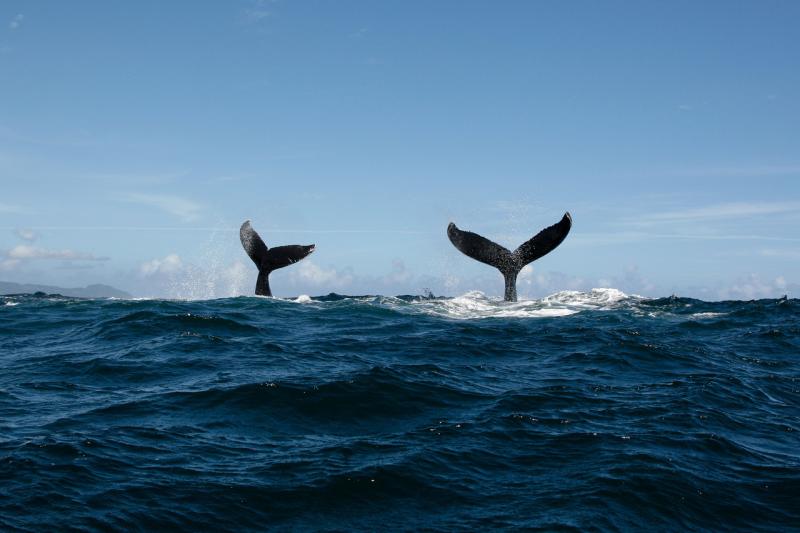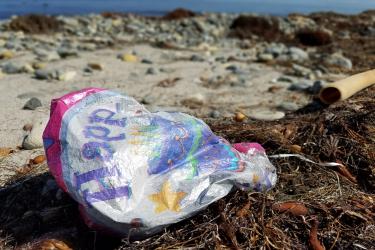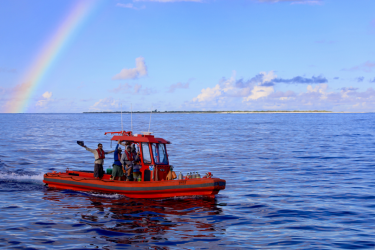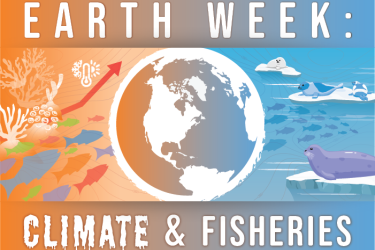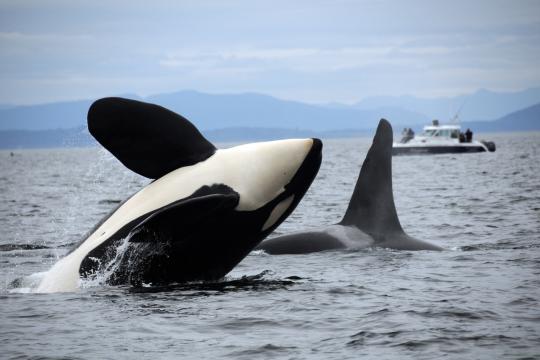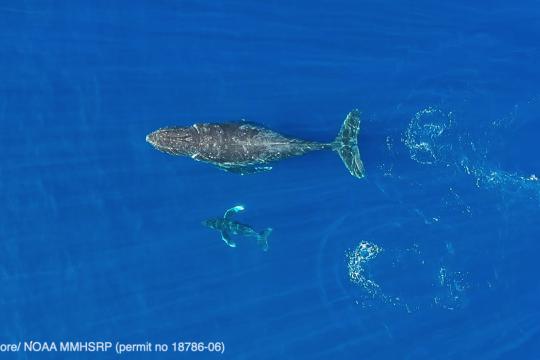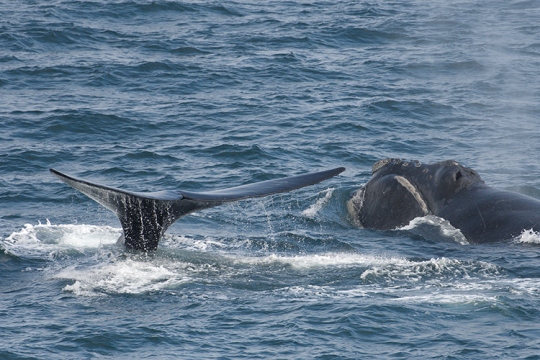Welcome to Whale Week 2018, where we highlight the talented people and special programs dedicated to identifying and addressing the challenges facing these fascinating mammals.
I know from my long experience in the North Pacific—where we were lucky to see a variety of species—nothing grabs people’s attention faster than a whale. Whether it’s an ancient bowhead with its iconic jaw, a humpback mother and calf, or one of the 30 or so remaining North Pacific right whales, these mammals just get people excited. And they should. These creatures play a pivotal role in the marine environment and they are important sentinels of changes in our marine ecosystems.
At NOAA Fisheries, one of our three strategic goals is to recover and preserve protected species while supporting responsible fishing and resource development. To do this we work with other agencies, research partners, academia, and non-governmental organizations here and in other countries. We also partner with U.S. fishing and marine-related industries and the public to recover protected species, including all whale species under our jurisdiction.
While we have seen some success in terms of whale recovery, many challenges remain. Ten species of whales in U.S. waters are listed under the Endangered Species Act, and we recently declared a third Unusual Mortality Event for whales on the East Coast, this time for minke whales.
This Whale Week, I’d like to highlight our recovery efforts for three species in particular: Cook Inlet beluga whales, Southern Resident killer whales, and North Atlantic right whales.
Cook Inlet beluga whales have been in decline since 1979, and are a difficult species to study. They live in silty water among floating chunks of ice in Alaska. To better understand the species and humans’ impact on them, we work with a number of research partners on passive acoustic recording, photo identification, and biopsy sampling efforts. And, maybe most importantly, we’ve gotten the community involved. Supported by more than 20 community partners, we organized the first “Belugas Count!” event last September, providing information and activities about Cook Inlet belugas, while enlisting the public to count all the whales they could spot from viewing stations. Read more about Cook Inlet beluga whales.
Our current efforts to recover endangered Southern Resident killer whales include implementing new partnerships such as the National Fish and Wildlife Foundation research and conservation grant program; collaborating with local, state, and Canadian organizations to understand diet and target recovery of critical Chinook salmon prey; and studying the health of each of the 76 whales that remain. We are also evaluating the effectiveness of protective regulations and expanding enforcement to reduce disturbance from vessels; exploring the whales' movements to protect critical habitat; and raising awareness through education and outreach partnerships. Read more about Southern Resident killer whales.
Last year was particularly devastating for already critically endangered North Atlantic right whales. These slow-moving whales suffered a 4 percent population loss. This number is particularly alarming as it coincides with a low rate of births, low proportion of females in the population, and overall population decline in recent years. NOAA scientists, resource managers, and partners along the East Coast are coordinating closely to bring more focus to this urgent conservation challenge. Follow our ongoing web series, Faces of North Atlantic Right Whale Conservation, to learn what our science and policy experts are doing, along with partners from Canada to Florida, to help lead this species to recovery. Read more about North Atlantic right whales.
Recovery of threatened and endangered species is a long-term commitment, and success depends on many partners working together. I hope you will spend time this week learning more about the work we do nationally, and how you can help.
Chris Oliver

Chris Oliver, Assistant Administrator for NOAA Fisheries.
